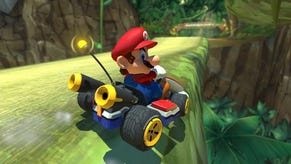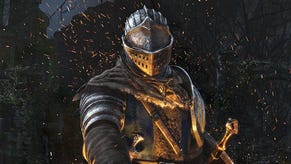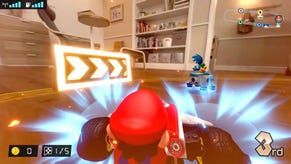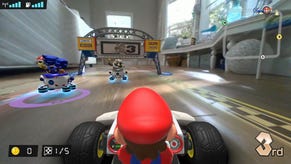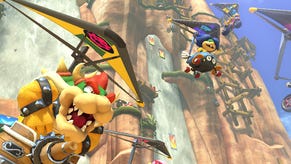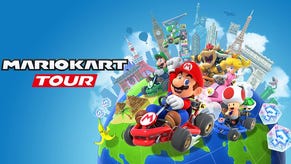Farewell, Nintendo Wi-Fi Connection
In a few hours, Nintendo DS and Wii games go offline forever. But should we eulogize the service? Or do we spit on its grave?
This article first appeared on USgamer, a partner publication of VG247. Some content, such as this article, has been migrated to VG247 for posterity after USgamer's closure - but it has not been edited or further vetted by the VG247 team.
Sometime in the next 24 hours, Nintendo's Wi-Fi Connection service will go dark forever, a casualty of GameSpy's looming death. With it, hundreds of online-capable Wii and DS games will go offline as well.
Who cares, you may ask? After all, Wii and DS are so last-gen, right? But remember that more than 100 million of each system exist in the wild, making them two of the three most prevalent game consoles of the past decade. For many younger gamers, Wii and DS remain their go-to systems for gaming... unless, of course, they've already abandoned consoles to focus exclusively on Angry Birds or Minecraft. Which is kind of Nintendo's big problem, these days.
The big-picture view is what makes this turn of events especially disappointing. Video games don't cease to be worth playing just because they're a few years old any more than movies cease to tell good stories after they hit a certain age. The difference between movies and games, of course, is that you don't need to go online in order to enjoy a DVD of The Wizard of Oz; the movie is the same in 2014 as it was in 1939. But good luck playing Mario Kart DS the way it was intended on its 10th anniversary this October; once the Wi-Fi Connection service goes dark, you'll never be able to enjoy racing a friend online again on your DS. Considering that was basically MKDS's main selling point — finally, Nintendo acknowledged the existence of the Internet! — there's something terribly pitiful about seeing such a key component of the game gutted with no recourse.
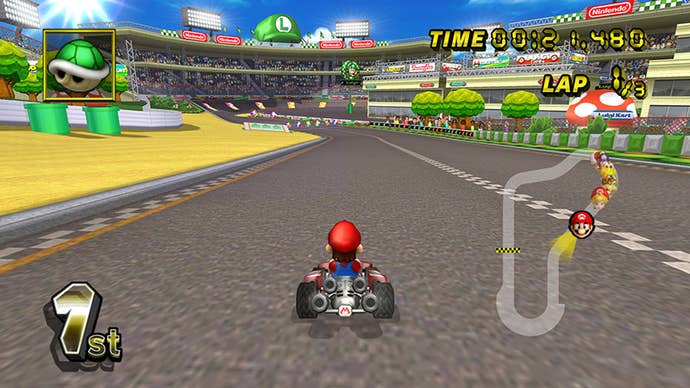
Most online-enabled Wii and DS games won't be rendered completely unplayable. The majority of WFC games simply used the service to distribute or unlock bonus content, and enterprising hackers have already figured out how to compensate for that loss. But for other games, such as Monster Hunter Tri and Mario Kart Wii, online play formed the backbone of the experience. No doubt Capcom and Nintendo will be very happy to let you know about the Wii U sequels to those games, but that sort of short-sighted mercenary approach doesn't do any favors for the idea of perserving of games as a medium.
For all the failings of Nintendo's Wi-Fi Connection system — not least of which its short-lived existence — it actually did enrich the games that incorporated it. The quirky nature of the service lent itself to unusual game experiences, wholly unique to Nintendo's platforms.
I have fond memories of the odd situations that WFC occasionally put me in. When WFC made its debut at McDonald's kiosks around the time that Mario Kart DS launched, I spent an hour perched on a sidewalk outside a McDonald's in downtown San Francisco trying to race people online as inconspicuously as possible amidst rush hour foot traffic in order to write a news story on how easy it was to skim off the free wi-fi service without actually having to eat McDonald's food. A few years later, while covering Tokyo Game Show at the peak of my Dragon Quest IX fever, I made a trip to the McDonald's in Shibuya every morning to update my DQVC sales list (and mutter with disappointment that the Japan-exclusive Ronald McDonald wig item wouldn't show up on my American cartridge).
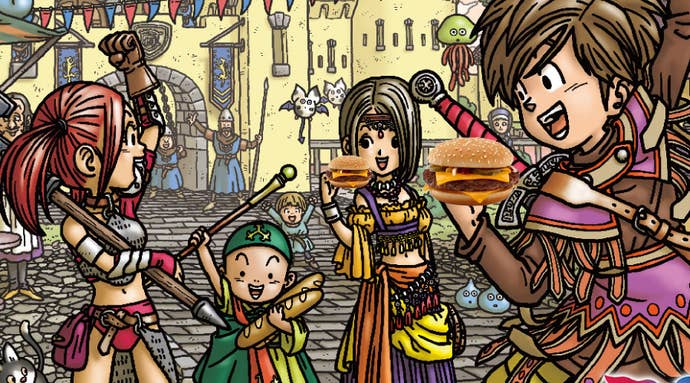
I also have memories that don't involve standing around like an idiot playing video games outside of fast food restaurants, like rushing home from work every day for a month in 2008 to try and perform rescue missions in Mystery Dungeon: Shiren the Wanderer. But those don't stand out in my memory nearly as much as the more ridiculous feats that WFC drove me to suffer through.
Then again, maybe I'm just a snowflake, unique and beautiful in my own way. I took a poll of my fellow USgamer contributors to round up thoughts and memories of their WFC experiences. Of the few people who had ever actually connected to WFC at all, only Kat had anything to say besides, "What a load of stupid crap."
And really, WFC was crap. Why did it take so long for Nintendo to get into the online race? Sega's Dreamcast launched in 1999 with a modem built right in, and both Sony and Microsoft were well ahead of Nintendo by the time they made their halting baby steps with Mario Kart DS and Animal Crossing: Wild World. And even then, Nintendo relied on an external party to provide the backbone of WFC, which is precisely why it's vanishing from the face of the earth this week. Sadly, the company's online strategy remains inanely backward all these years later — hence the incipient arrival of Mario Kart 8 later this month, a 2014 game that lacks voice functionality for online play. Amidst all of Nintendo's other current troubles, the sad disappearance of online support for hundreds of games (with which their current consoles remain backward compatible) couldn't have come at a worse time. Not only does it neuter a massive collection of games, it creates the unfortunate impression that the company just doesn't get it... and never has.
We can take comfort in knowing that enterprising fans will continue coming up with workarounds. But what are your thoughts on the WFC situation? Is it a true tragedy? The death of a dream? Or good riddance to bad rubbish? Did WFC bring anything good to your life, or was it all simply a tragic waste? Either way, all I know is that I need to go download a whole bunch of Professor Layton puzzles, pronto.

.jpg?width=291&height=164&fit=crop&quality=80&format=jpg&auto=webp)
